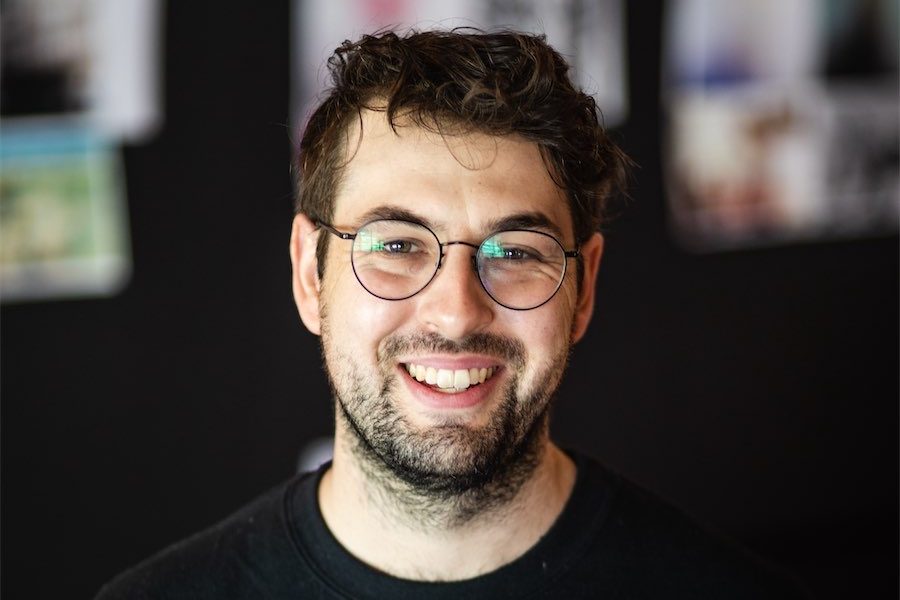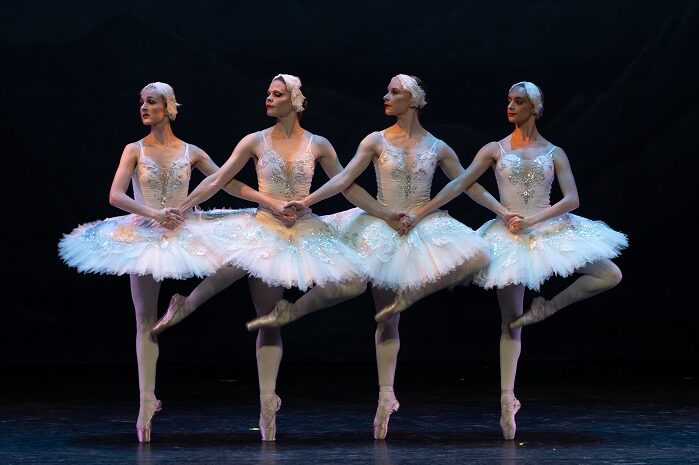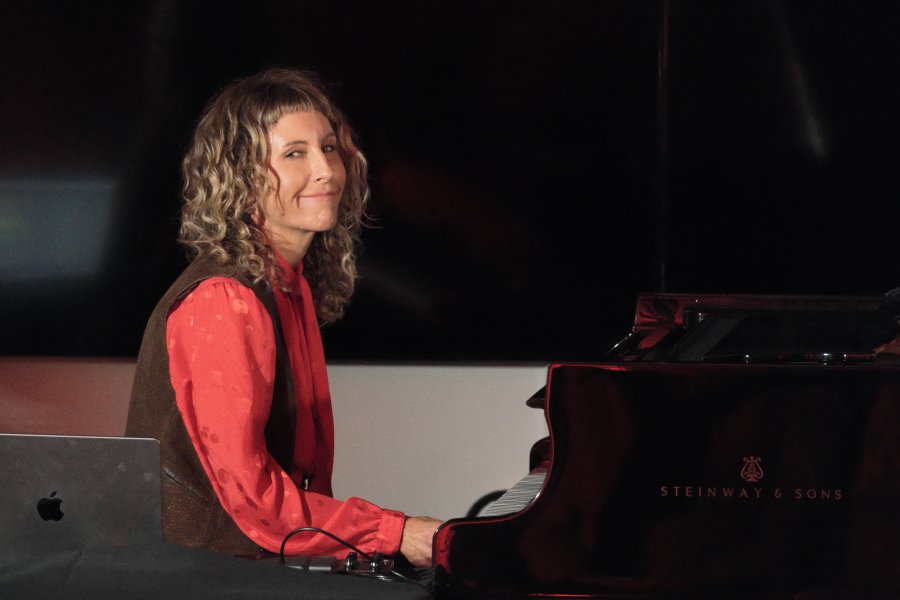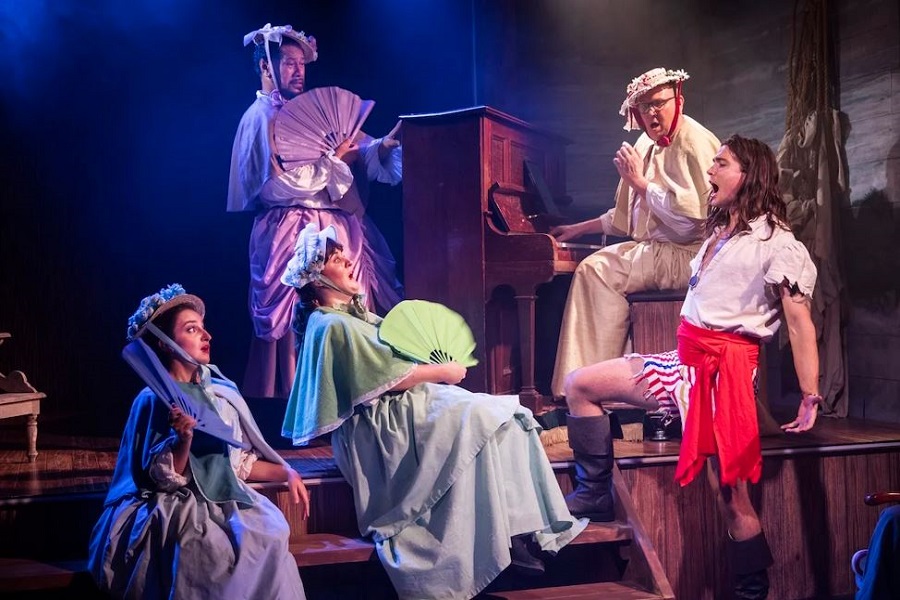
There’s no other way of putting it – Canberra playwright Dylan Van Den Berg is hot property in Australian theatre circles.
His recent triple win at the Australian Writers Guild’s Awgies cement him as one of the country’s most in-demand writers for the stage, but it’s just one of many such accolades over recent years.
But right now, there’s something even more exciting in his life.
When I catch up with him, he and wife Emily are eagerly awaiting the birth of their second child and, happy to report as we go to press, a baby boy has just been born.
That makes for an even busier life for Van Den Berg, who is juggling four commissions, a day-job with Sydney’s Griffin Theatre and a fair bit of bread-and-butter screenwriting.
Van Den Berg’s artistic prowess is pretty much attributable to his time in Canberra.
Born of Tasmanian Palawa ancestry, he came to the ANU to study Indonesian, but was rapidly seduced into theatre studies, too – he even took an acting course in New York on a break. He soon found himself involved with The Street Theatre as both an actor and a fledgling playwright, writing in several dramaturgical initiatives of the company .
I first came across him there at a so-called First Seen showing of his play Milk, which won the top drama award at the Victorian Premier’s and – twice – NSW Premier’s Literary Awards. By that time Vandenberg had cemented himself in the Canberra Theatre community, and came to note playing the unfortunate verminous creature in the staged version of Kafka’s Metamorphosis.
But it was writing that was in his blood, and his flair for dialogue has been shown time and time again, notably in the work acknowledged in the Awgies main award, Whitefella Yella Tree, a tale of two young boys facing colonisation – Van Den Berg’s scintillating dialogue made its mark.
When I catch up with him, he tells me that he spends most of his time on the highway between Canberra and Sydney. He’s been consistently working with Griffin Theatre in King’s Cross and now has a day job as its literary manager.
Griffin, which developed and staged Whitefella Yella Tree, will receive $80,000 to develop it for the stage and Van Den Berg gets an extra $20,000 for his part in it.
It takes a long time for a commission to get through to production, so he’s taking no chances and right now is working on several different scripts.
One is The Flood with the National Theatre of Parramatta, “a kind of an apocalyptic thing, in which two young people are stranded while looking for water and meet a strange woman in a cave who has been keeping the water for herself.”
Another, which will involve a lot more time in Canberra in the next couple of months, is for The Street Theatre.
It’s the Rodney Seaborn Playwrights Award winner from 2022, The Chosen Vessel, an adaptation of Barbara Baynton’s short story of the same name, about a woman living in the bush awaiting death.
Van Den Berg says he’s added a ghost to deal with the question of our capacity to change the course of history. He agrees it sounds similar to Lawson’s The Drover’s Wife, to which Baynton’s story was a response, and which was recently adapted for the screen by Leah Purcell.
All the while, he’s been working on a screen version of Whitefella Yella Tree, while supplementing his income by writing for Playschool and the ABC’s Reef School, an underwater adventure on an imaginary Australian coral reef, aimed at preschoolers.
“You’ve got to pay the bills,” Van Den Berg tells me philosophically.
“I’m in the fortunate position to be able to pick and choose… you need to maintain artistic control over your material, but there’s a lot of joy in writing for kids.” Besides, it gives him good practice for his home life.
As for the future, there’s a lot he can’t talk about, including a major screen commission, but he’s also involved in a crime series, which he describes as “a different task”. And no, it doesn’t have a disaffected Aboriginal cop in it.
“I’m a bit of a lazy writer,” Van Den Berg says. “I have to sit with an idea for a long time, but then when I write, it usually takes me just two or three days to write the whole thing – I’m not a writing-every-day kind of a person, but a deadline helps me.”
He’s got plenty of those.
Who can be trusted?
In a world of spin and confusion, there’s never been a more important time to support independent journalism in Canberra.
If you trust our work online and want to enforce the power of independent voices, I invite you to make a small contribution.
Every dollar of support is invested back into our journalism to help keep citynews.com.au strong and free.
Thank you,
Ian Meikle, editor








Leave a Reply